14
Министерство образования и науки Донецкой Народной Республики
ГБПОУ «Донецкий политехнический колледж»
МЕТОДИЧЕСКАЯ РАЗРАБОТКА
Сборник лексических и грамматических упражнений
для студентов І курса всех специальностей
(Г.Т. Безкоровайная, Н.И. Соколова Planet of English: учебник англ. языка для учреждений СПО, М, Издательский центр «Академия», 2023)
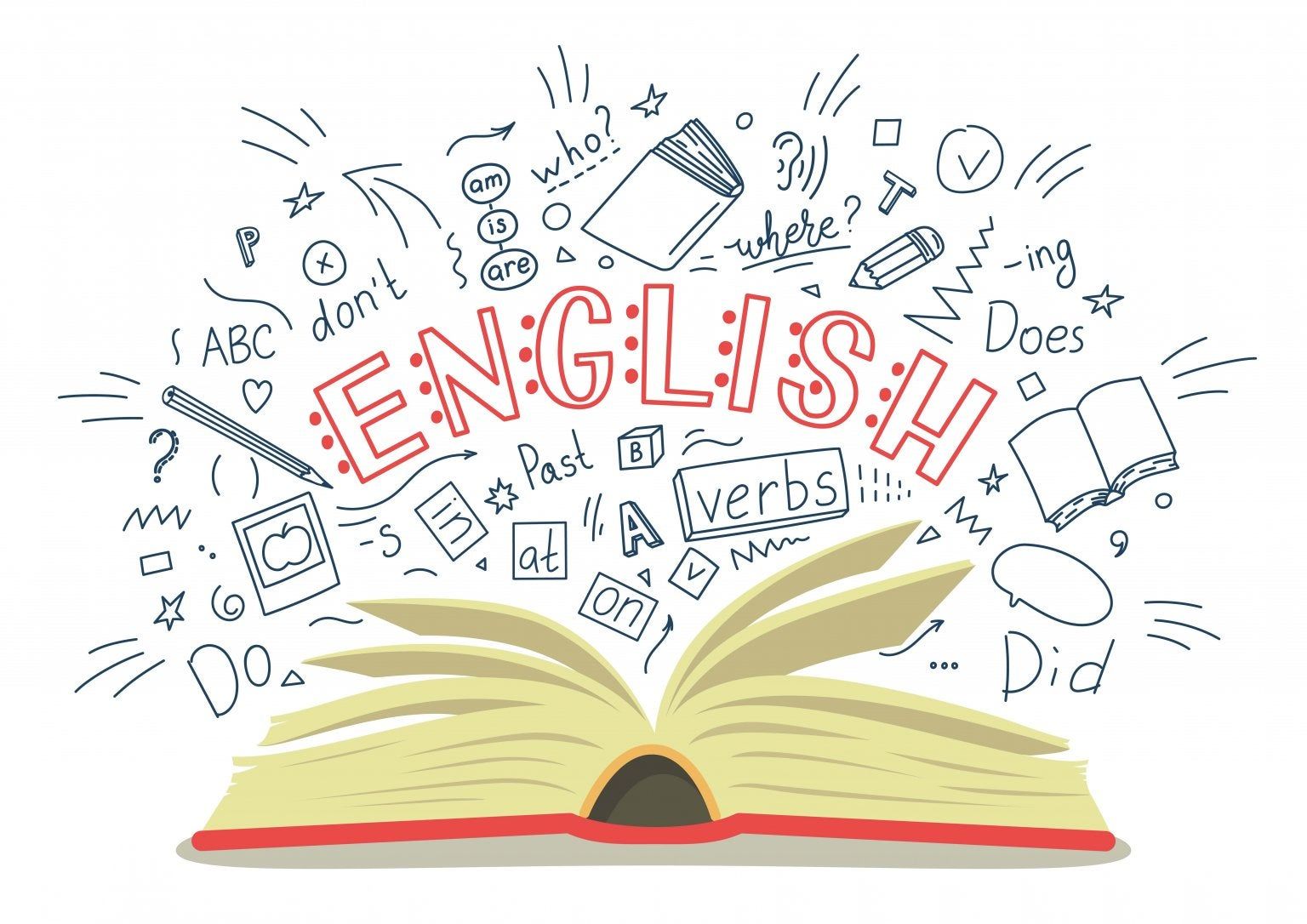
Подготовила: Краснова А.С.
Донецк
2024 г.
Методическая разработка для преподавателей английского языка, на тему: Сборник лексических и грамматических упражнений
для студентов І курса всех специальностей
(Г.Т. Безкоровайная, Н.И. Соколова Planet of English: учебник англ. языка для учреждений СПО, М, Издательский центр «Академия», 2023)
Подготовила Краснова А.С. – преподаватель ГБПОУ «Донецкий политехнический колледж» - 2024
Для преподавателей иностранного языка колледжей, работающих со студентами I курса всех специальностей.
Рассмотрено и утверждено
на заседании цикловой комиссии
иностранных языков
Протокол № __ от ___ февраля 2024 г.
Председатель цикловой комиссии
_________ З.Е. Козополянская
Аннотация
Данная методическая разработка является сборником лексических и грамматических упражнений для студентов І курса всех специальностей. Она разработана в соответствии с учетом требований федеральных государственных образовательных стандартов по специальности среднего профессионального образования. В сборник включены упражнения по всем лексическим и грамматическим темам, которые изучаются на 1 курсе в учебнике англ. языка для учреждений СПО Г.Т. Безкоровайная, Н.И. Соколова « Planet of English».
Согласно Федеральному государственному образовательному стандарту среднего профессионального образования по данным специальностям, в результате освоения дисциплины «Иностранный язык» обучающийся должен уметь общаться (устно и письменно) на иностранном языке на профессиональные и повседневные темы; переводить (со словарем) иностранные тексты профессиональной направленности; самостоятельно совершенствовать устную и письменную речь, пополнять словарный запас.
Основная цель данного методического пособия - расширение словарного запаса студентов, а также практическое использование лексики при переводе текстов, диалогов и выполнении упражнений. Пособие может быть особенно полезным студентам при чтении текстов профессиональной направленности на английском языке вне данного пособия и, безусловно, пополнит словарный запас обучающихся.
Преподаватель английского языка
Краснова А.С.
Лексико-грамматические упражнения
#1 Vocabulary: numbers
Grammar: personal pronouns, the verb be
ЗАПОМНИТЕ!
Математические действия
+ plus - minus * times
: divided by = is
13 + 12 = 24 : 3 = 4 * 7 =
3 * 6 = 16 – 5 = 30 – 15 =
24 : 2 = 4 + 17 = 11 – 3 =
2. Вставьте подходящие по смыслу личные местоимения.
1. Ben is a little boy. … is six.
2. Max is a soldier. … is brave.
3. Lily is a young woman. … is very beautiful.
4. Nick and Ann are far from Moscow. … are on a farm.
5. This is Ben's room. … is nice.
6. These are new books. … are interesting.
7. This is Elsa. … is a student.
8. Nick and Max are students. … are students of a college.
9. The rooms are small but … are light and warm.
10. Hans is a new student. … is from Germany.
3. Вставьте соответствующие личные местоимения в предлагаемых ответах на вопросы.
1. Is your house new? – Yes, … is.
2. Are the students at the English lesson now? - Yes, ... are.
3. Is your college in Green Street? – Yes, … is.
4. Are Helen and Bess your sisters? – Yes, … are.
5. Is Ben's sister an engineer? – Yes, … is.
6. Are the pencils red? – No, … are not.
7. Is this room comfortable? - No, … isn't.
8. Is Ben on holiday now? – No, … isn't.
9. Is Helen nice? - Yes, … is.
10. Are you an engineer? - Yes, … am.
4. Заполните пропуски соответствующей формой глагола to be.
1. You …… from Australia.
2. My English teacher …… Mr Simpson.
3. I …… seventeen years old.
4. My pencil …… in my bag.
5. We …… at home.
5. Составьте предложения, используя отрицательную форму глагола to be.
1. This coffee / hot.
2. Sam / in the classroom.
3. We / eighteen years old.
4. They / from Spain.
5. I / hungry.
6. Образуйте из предложенных слов вопросительные предложения. Затем подберите к ним подходящие по смыслу ответы.
1. Martin / name / your / is / ?
2. you / are / Russia / from / ?
3. at / home / is / dad / your / ?
4. teachers / and Helen / are / Ben / ?
5. Sarah / is / hungry/ ?
a). Yes, he is. b). No, they aren´t. c). No, it isn´t.
d). Yes, she is. e). Yes, we are. f). Yes, I am.
7. Ответьте на вопросы.
1. Is your English teacher a man?
2. Is your textbook green?
3. Is yellow your favourite colour?
4. Are you at college now?
5. Are your friends from the USA?
#2 Grammar: possessive pronouns,
have got
1. Вставьте притяжательные местоимения.
1. Is your bag new? - Yes, … bag is new .
2. I like … hat, Ann.
3. Don't plant this tree! … branch is broken.
4. Max, you have a new job. Do you like … new job?
5. … friends always tell me everything.
6. Our dog likes to run after ... tail.
2..
 Прочтите диалог.
Прочтите диалог.
Кто или что Флоппи?
Lauren: Is that your cat?
H arvey: No, I haven´t got a cat. I´ve got a dog
arvey: No, I haven´t got a cat. I´ve got a dog
– his name is Patch. And my sister has got a rabbit.
Lauren: What´s her name?
Harvey: Floppy.
L auren: Not the rabbit – your sister!
auren: Not the rabbit – your sister!
Harvey: Oh, sorry. My sister´s name is Eva.
Lauren: Have you got a brother?
Harvey: Yes, I have. Sam. But he isn´t at home.
Lauren: Where is he?
Harvey: I am not sure. He hasn´t got his mobile with him.
3. Выберите из диалога (упр. 2) все примеры употребления have got и заполните таблицу.
| have got | ||
| + | - | ? |
|
● I ____ got… ● You´ve got… ● He / She / It____ got… ● We´ve got… ● They´ve got…
|
● I ____ got… ● You haven´t got… ● He / She / It____ got… ● We haven´t got… ● They haven´t got… |
● Have I got…? – Yes, I …/ No, I haven´t. ● ___ you / we / they got…? – Yes, you / we / they have / No, you / we / they haven´t. ● Has he / she / it got…? Yes, he / she / it has / No, he / she / it hasn´t.
|
4. Дополните предложения утвердительной и отрицательной формой выражения have got. Используйте информацию из диалога в упр. 2.
1. Harvey ____________ a cat.
2. Harvey____________ a dog.
3. Eva _____________ a rabbit.
4. Eva and Harvey __________ a brother.
5. Sam ___________ his mobile with him.
5. Вставьте вместо пропусков подходящую форму выражения have got.
1. I … a comfortable flat.
2. Nick … many friends.
3. They … a lot of flowers in their garden.
4. She … long hair.
5. The farm … two new tractors.
6. You … a good collection of stamps.
7. We … a nice house.
8. The cat … three kittens.
6. Образуйте вопросительную форму и дайте ответы.
1. Ann has got a new coat.
2. Nick has got a scooter.
3. They have got an old garden.
4. The hunter has got a dog.
5. You have got two apple-trees in the garden.
#3 Vocabulary, reading & writing: describing people
1. Соотнесите описание с подходящей картинкой.
a). Molly is middle-aged. She has got a nice face and dark hair. She`s rather fat.
b). Peggy is young and slim. She is even rather thin. She has got fair hair and regular features.
c). Alice is charming and very feminine. She has got long blond hair and nice legs.
d). Mary likes sport. She`s rather athletic. She`s slim and well-build. She has got dark hair.
e). John is middle-aged. He`s rather stout. He has got a beard and he wears dark glasses.
f). Ron is handsome. He has got regular features. He hasn´t got a moustache.
g). Jack is short but he`s well-build and elegant. He has got fair hair.
h). Tom is very handsome. He`s tall, athletic and well-dressed. He has got blond hair.
i). Michael is good-looking. He has got long dark hair, a beard and a moustache.
1. 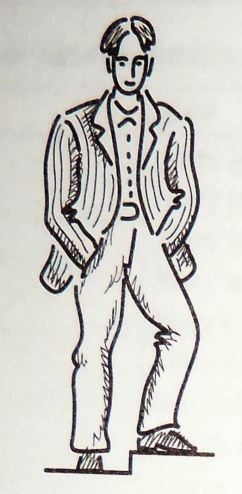 2.
2.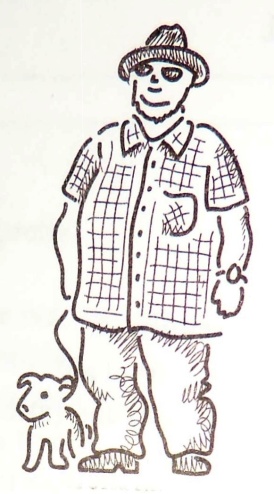 3.
3.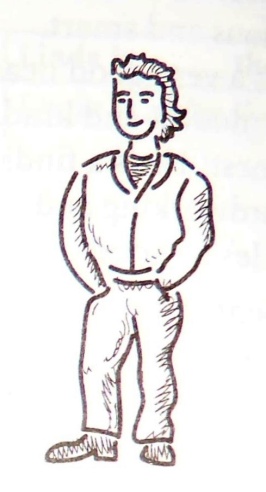 4.
4.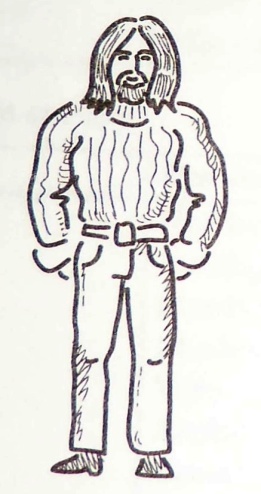 5.
5.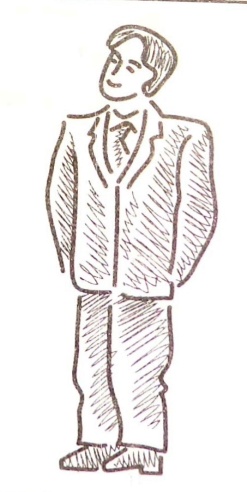
6.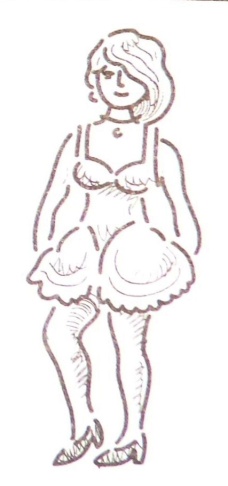 7.
7.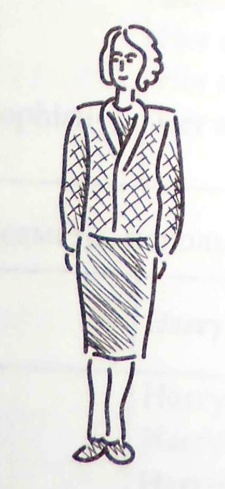 8.
8.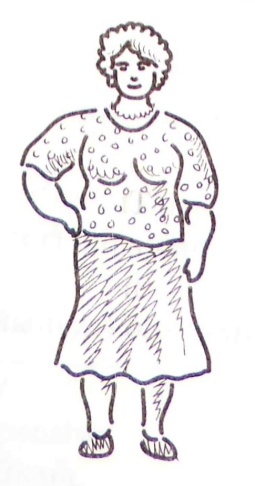 9.
9.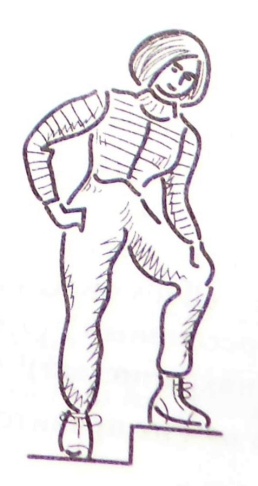
2. Прочтите текст, определите верны ли следующие утверждения:
As you know people from different countries do not look the same. For example, people from Denmark, Norway and Sweden are usually tall. They have got fair hair, blue eyes and a pale skin.
Most people in Italy, Spain and Greece are short. They have got black or dark brown wavy hair, brown eyes and light brown skin.
Most people from Africa have got black curly hair and very dark skin. They have also got dark brown eyes, full lips and a wide, flattish nose.
People from Arab countries have got dark hair and dark brown eyes. They have got dark skin.
a). People from Norway and Sweden have got fair hair, brown eyes and light brown skin.
b). Most people in Italy, Spain and Greece are short and have got dark straight hair and dark brown eyes.
c). People from Africa have got black curly hair and very dark skin.
d). People from Arab countries have got fair hair, blue eyes and a pale skin.
3. Напишите текст о себе, выбрав подходящий вариант:
Hi! My name is ... I am fifteen (sixteen, seventeen, eighteen). I live in ….
I am tall (not very tall, short, of middle height). I am thin (not very thin, rather plump). My face is round (square, oval). I have got a fair (dark) skin. I have got a straight (upturned, crooked) nose. I have got large (small) blue (brown, hazel, black, grey) eyes. My hair is black (fair, dark, blond, chestnut), straight (curly) and long (short, not very long).
I am a first-year student of college “Energy”. I like my future profession and I am going to do my best to become a good lawyer/ IT specialist/ biochemical process engineer.
#4 Vocabulary: members of the family, possessive ´s
1. Проанализируйте семейное древо семьи Холли и дополните предложения, используя следующие слова:
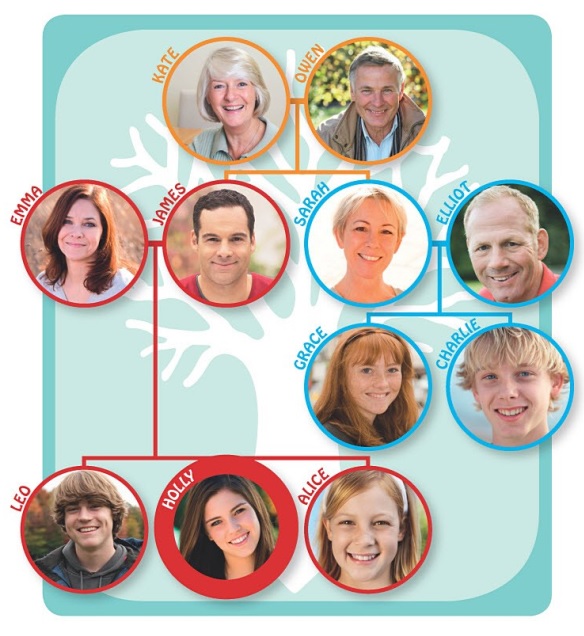
wife - жена
husband - муж
mother, mum - мама
father, dad - папа
son - сын
daughter - дочь
brother - брат
sister - сестра
grandmother - бабушка
grandfather - дедушка
grandson - внук
granddaughter – внучка
aunt - тетя
uncle - дядя
niece - племянница
nephew - племянник
cousin – двоюродный
брат (сестра)
1. James is Holly´s … . 6. Owen is her … .
2. Leo is her … . 7. Sarah is her … .
3. Kate is her … . 8. Charlie is her … .
4. Emma is her … . 9. Elliot is her … .
5. Alice is her … .
2. Укажите родственные связи членов семьи Холли.
1. Leo is Sarah´s … . 9. Sara is Leo´s … .
2. James is Emma´s … . 10. Emma is James´ … .
3. Holly is Kate´s … . 11. Kate is Holly´s … .
4. Grace is Elliot´s … . 12. Elliot is Grace´s … .
5. Kate is Owen´s … . 13. Owen is Kate´s … .
6. James is Kate´s … . 14. Kate is James´ … .
7. Alice is Sarah´s … . 15. Sarah is Alice´s … .
8. Charlie is Owen´s … . 16. Owen is Charlie´s … .
3. Вставьте пропущенные слова.
children – дети
grandchildren - внуки
grandson - внук
granddaughter - внучка
parents – родители
grandparents - бабушка и дедушка
a). son + daughter = ?
b). mother + father = ?
c). grandmother + grandfather = ?
d). grandson + ? = ?
#5 Speaking: talking about family
Grammar: present simple
1. Разыграйте диалог, используя следующие вопросы.
● Is your family large or small? – My family is …
● Who are your parents? – My father´s name is… My mother´s name is …
● Have you got any brother or sister? – Yes, I have a brother (a sister). His (her) name is …
● How old is your mother (father, brother, sister)? – My mum is … My dad is …
● Is your brother (sister) married? – Yes, ... / No, ….
● Who are your other relatives? – My other relatives are …
2. Поставьте глаголы в скобках в the Present simple tense.
1. Сhildren (to like) to play computer games. 2. My sister (to read) English and French books. 3. Our cousin (to live) in the village. 4. Their son (to go) to school every day. 5. I (to want) to become a worker. 6. My grandmother (to take) me by the hand. 7. I (to see) my niece on Fridays. 8. My brother´s wife (to teach) Russian at school. 9. Our sister (to live) in the USA. 10. I always (to get) up at 7 o´clock.
3. Составьте предложения из следующих слов. Переведите эти предложения на русский язык.
1. every Monday, at a hospital, my wife, works.
2. watches, her son, TV, often.
3. by car, always, goes, their uncle, to the office.
4. my brother, early, home, usually, comes.
5. to listen to music, in the garden, seldom, your grandfather, likes.
4
to fly – he / she / it flies
. a). Образуйте форму 3-го лица единственного числа the Present simple tense следующих глаголов:to sit, to read, to skate, to do, to ask, to see,
to come, to wash, to teach, to fly, to mix, to play.
б). Распределите их в следующие группы: -s [s], -s [z], -es [iz].
5. Выразите несогласие со следующими утверждениями.
Образец: They get up early. - They don´t get up early.
He speaks French. - He doesn´t speak French.
1. Her children learn English. 2. Tom's sister lives in a small village. 3. The boys like basketball. 4. He knows my address. 5. The farmers grow potatoes here. 6. Mary teaches at school. 7. We go to the country in summer. 8. I go to the office by bus. 9. They watch TV in the evening. 10. The students of our group study English. 11. Ann and Mary play tennis. 12. My parents like ice-cream. 13. Our granddaughter lives in the USA. 14. I study at the university.
6. Составьте предложения из следующих слов. Переведите их на русский язык.
1. New York, children, live, in, don´t, Tom´s.
2. pizza, brother, eat, doesn´t, my.
3. Lady Gaga, like, my, don´t, friends.
4. their, doesn´t, in, a hotel, uncle.
5. parents, speak, don´t, her, English.
7. Вставьте вместо пропусков do, does, don´t, doesn’t.
a). … your dad work in Abakan? – No, he …
b). … your cousins live near the school? – Yes, they …
c). … your grandfather use computer? – No, he …
d). … her lessons start at 9 o´clock? – Yes, they …
e). … his niece drink coffee? – No, she …
8. Вставьте подходящие вопросительные слова.
1. …… foreign language does your sister speak? 2. …… do you live? 3. …… do you have for dinner? 4. …… do you usually do in summer?
9. Задайте вопросы, используя данные слова.
1. knows, who, English, well? 2. your sister, work, does, where? 3. do, know, you, what, about this city? 4. how, you, spend, do, your holidays? 5. do, do, what, you? 6. music, do, what, like, they? 7. he, why, get up, early, does? 8. go to bed, you, do, usually, what time?
10. Задайте вопросы, используя вопросительные слова в скобках.
1. My friends go to the country on Sundays. (Who? Why? When?) 2. Ann lives in the centre of the city. (Who? Where?) 3. Nick goes to the office by car. (Where?) 4. Ann's sisters live in the country most of the time. (Where? Who?) 5. Tom's brother always gets up very early. (Who?)
#6 Vocabulary: the house
Grammar: there is/there are
1. Найдите данные слова на рисунке и переведите их на русский язык.
A. ROOMS (#1-10)
a bathroom
a bedroom
a dining room
a garage
a garden
a hall
a kitchen
a living room
a study
a toilet
B. PARTS OF A ROOM (#11-15)
a balcony
the ceiling
the floor
the stairs
the wall
C. THINGS IN A ROOM (#16-31)
an armchair
a bath
a bed
a carpet
a cooker
a cupboard
a fireplace
a fridge
a lamp
a light
a mirror
a plant
a shelf (shelves)
a shower
a sofa
a washing machine
REMEMBER!
the stairs
upstairs
downstairs
the FIRST FLOOR in Russia = the GROUND FLOOR in the UK.
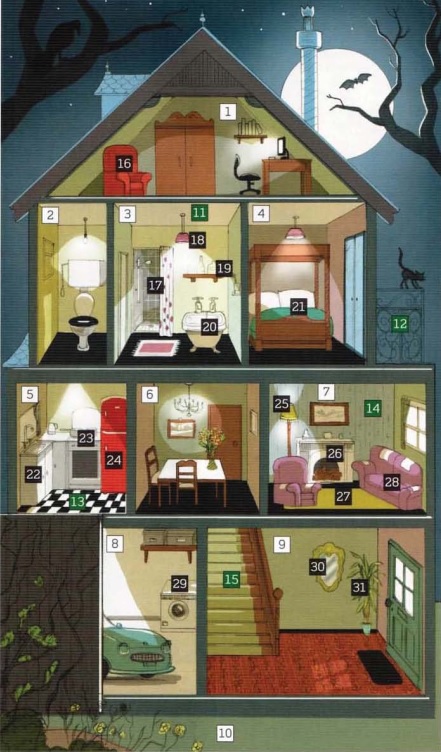
2. a). Заполните таблицу, используя данные выражения.
| Room | W a). have a shower, b). cook dinner, c). watch television, d). sit outside, e). sleep in the bed, f). read newspapers, g). drink a cup of tea, h). take a bath, i). put on clothes, j). grow flowers
|
| a kitchen |
|
| a living room |
|
| a bedroom |
|
| a bathroom |
|
| the garden |
|
б). Расскажите о том, что вы и члены вашей семьи делают в указанных помещениях. Используйте слова: always, usually, often, sometimes.
3. Выберите правильный вариант, переведите на русский язык.
1. There is / There are a bath in the bathroom. 2. There is / There are posters in my bedroom. 3. There isn´t / There aren´t a fireplace in our dining room. 4. There are / There aren´t any plants in my brother´s house. 5. There isn´t / There aren´t a computer in the hall. 6. There is / There are a fridge in the kitchen.
4. Составьте предложения, используя предлоги места.
There is a ghost …

… behind… … in … … under …

… over … … in front of … …next to …

…between… … opposite … … on …
5. Закончите описание комнаты Тома.
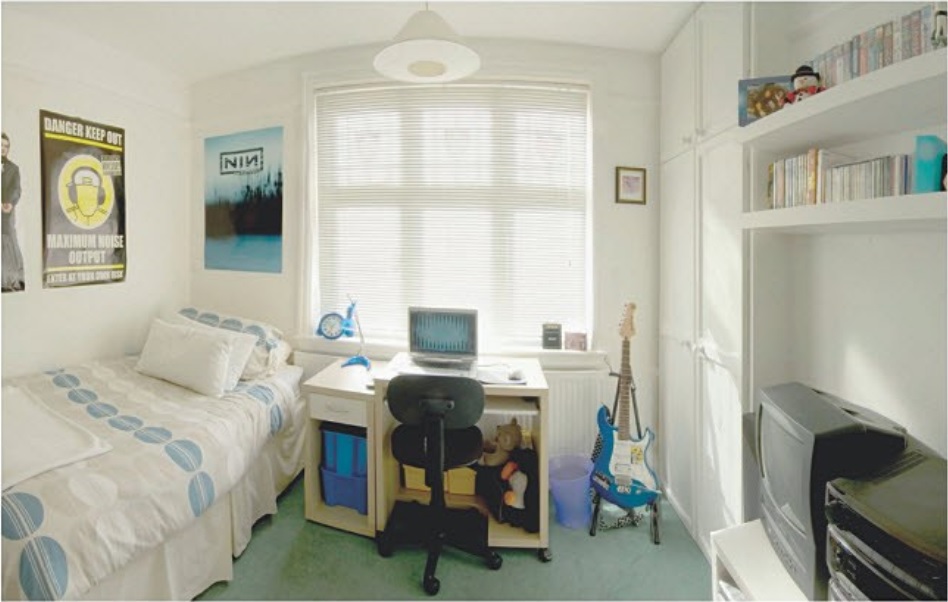
This is Tom´s room. It´s large and light. There is a bed … . There is a desk … . Tom´s computer is … . There is the lamp … . There are some shelves with books on them. There is a small TV … . Tom´s wardrobe is … . There are some posters … . There isn´t any carpet … . Tom´s guitar is … . There aren´t any plants … because Tom doesn´t like them.
6. Опишите свой дом (квартиру), дополнив предложения.
My family is … (large, small). There are … (three, four, five…) of us: … (father, mother, my brother, my sister) and me. We all live in our … (house, flat). Each of us has his favourite place. My father’s favourite room is … (the living room). There are … (a flat-screen TV, a wall unit, a sofa, two armchairs). He usually … (watches TV, reads newspapers) there. My mother’s favourite place is our … (kitchen). She … (cooks there my favourite dishes, likes to sit with a cup of coffee). My favourite place is my … (bedroom). It isn´t large, but … (cosy, light, and stylish). The wall colour is … (light, dark). The furniture there is … (modern, stylish). There is … (a bed, a desk, a wardrobe) in my bedroom. I like … (to listen to music, to play computer games) there.
#8 Vocabulary: numerals, the dates,
telling the time, prepositions of time
1. Запишите числительные словами.
a). Количественные числительные:
3, 5, 11, 12, 13, 24, 69, 325, 1005, 530425.
б). Порядковые числительные:
1, 2, 15, 23, 84, 149, 150, 208, 1000, 2000000.
2. Запишите цифрами следующие даты.
a). the first of March nineteen seventy-six; b). the fifth of December two thousand; с). the sixteenth of May nineteen o five; d). the third of July nineteen hundred.
3. Переведите на английский язык.
1). 7 марта 1999 года. 2). 1 сентября 1977 года. 3). 20 апреля 1911 года. 4). 12 марта 1950 года. 5). 12 декабря 2024 года.
4. Решите примеры и запишите ответы словами.
a). sixty-two - fourteen = …
b). fifteen + two hundred and forty-six = …
c). ninety + ten = …
d). thirty-one + nineteen = …
e). seventy-three + eighty-two = …
f). three thousand one hundred and twelve - ninety-nine = …
5. Вставьте пропущенные предлоги.
1. My dad´s birthday is … 3rd April. 2. I like watching TV … evening. 3. Her brother Alex does his morning exercises … the mornings. 4. Our niece was born … 1995. 5. The party is … Sunday. 6. `Mary and Lora often play volleyball … Monday morning. 7. We arrive home late … night. 8. This year the Christmas is celebrated … Wednesday the 7th of January. 9. They don´t watch TV … afternoon. 10. … 2011 Prince William married Catherine Middleton.
6. Запомните слова, использующиеся для обозначения времени.
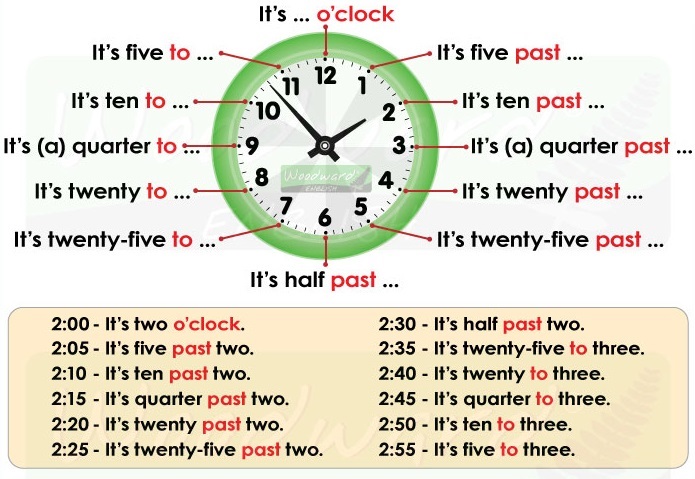
7. Укажите который сейчас час.
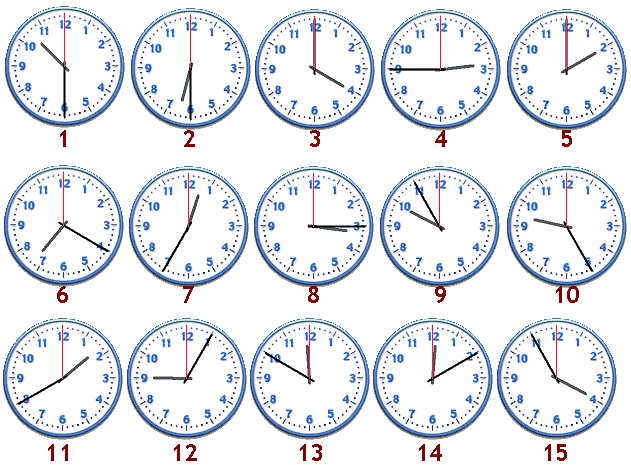
#9 Vocabulary: everyday activities
Grammar: adverbs of frequency
Writing: my working day
1. а). Опишите типичный день Лизы, используя следующие выражения:

to get up early
to have breakfast
to have a shower
to go to work by bus (by car)
to start work

to have lunch
to finish work
to go home
to go shopping
to go to the gym

to make dinner
to have dinner
to do housework
to watch TV
to have
a bath
to go to bed
late
б). В какое время вы делаете указанные действия?
2. Как часто вы делаете указанные действия? Используйте always, usually, often, sometimes, never.
-
100%
always
listen to the radio in the car,- read newspapers in the morning,
-
usually
speak English outside class,- watch TV in the evening,
-
often
50%
have pasta for lunch,- clean the rooms at the weekend.
-
sometimes
eat fast food,- drink cola,
-
0%
never
play computer games,- do my home work.
3. Познакомьтесь с распорядком дня Майка. Используя текст как образец, составьте рассказ о вашем распорядке дня.
Mike is a first year student of the Technical College. He goes to the College every day except Sunday. Mike’s classes begin at 8.00. He lives far from the College, so he must get up very early. The alarm clock wakes him up at 6.30 a.m. Sometimes he turns off the alarm and lies in bed until his mother wakes him up again.
He jumps out of bed, opens the window, does his morning exercises to the music, makes the bed and goes to the bathroom. In the bathroom he always takes a cold or a warm shower and cleans his teeth. Then he goes back to his room and gets dressed.
In some minutes he is ready for breakfast. He usually has a cup of tea or coffee and a sandwich or two. Mike is always in a hurry because he doesn’t want to be late for classes. At 7.30 he leaves home for the College. He usually gets to the College by bus. It takes him about half an hour to get to the College.
He comes to the College some minutes before the bell rings. Mike has enough time to get everything ready for his classes. His days are not like each other because he has a different timetable every day. As a rule he has 6 lessons a day. Mike does his best not to miss classes because he knows that missing classes is a sure way to fail at exams. At 11.10 o’clock he has a break for lunch. Mike goes to the canteen. After the break classes go on. They are usually over at about 3 o’clock.
After classes Mike usually goes home. After a day of hard work Mike feels very tired and he hurries home. At home he has dinner and a short rest, then he does his homework and helps his mother about the house. In the evening Mike watches a serial or a detective story on TV. Sometimes he goes out with his friends. Mike goes in for sports. Twice a week he plays volleyball in the College gym. He returns home at 8 p.m. and has supper. At about 12 o’clock Mike goes to bed.
#10 Vocabulary & speaking: free-time activities
Grammar: love, like, hate +Ving
1. Соотнесите название хобби с фотографией.






a). camping
b). buying clothes
c). cooking
d). cycling
e). flying
f). going to the cinema
g). reading
h). running
i). swimming
j). painting
k). travelling
l). watching DVDs
2. Прочтите анкеты 6 человек с сайта знакомств. Сможете ли вы подобрать пары? Объясните ваш выбор.






Образец: Isabella and … , because she loves … and he likes …
3. Образуйте глагольные формы с –ing окончанием следующих слов, заполните таблицу.
cycle, drive, listen, make, park, play, run, shop, serf,
study, swim, travel, write, draw, knit, sew, cook, ride, fish
| + ing | e | согласная*2 + -ing |
|
|
|
|
4. Переведите предложения на английский язык.
1. Моя сестра любит танцевать. 2. Моему отцу не нравится ездить на работу на машине. 3. Мой друг увлекается бегом. 4. Ей не нравится делать покупки по выходным. 5. Я люблю готовить ужин для всей семьи. 6. Их бабушка любит вязать и шить. 7. Его родители увлекаются рисованием. 8. Вам нравится рыбачить зимой? 9. После занятий я люблю работать в интернете. 10. Нам не нравится учиться в субботу.
5. Прочтите текст. Разделяете ли вы описанные увлечения? Расскажите, что вы любите делать в свободное время.
Hobby is a special interest that people do in their free time. Everybody has his/her own hobby.
I like to listen to music. Now I have got a compact disc player, my parents´ gift, and I collect compact discs. I like different music, it only should be good. I collect discs of my favourite groups and singers. I carefully study the information printed on disc booklets. I try to find everything about my favourite singers. Also I like to watch music programmes on TV. I want to keep up with the news in the world of music.
Of course, I like to spend my spare time with my friends. We talk about all sorts of things (teachers, girls). We discuss films, books, TV programmes. If the weather is fine, we like to be in the open air. We find a nice place somewhere in the forest. We make a fire, bake potatoes and have a lot of fun. When the weather is bad, my friends come to my place. We have a good time together.
#11 Vocabulary: post address, places in town
Grammar: wh-questions
1. Найдите слова, показанные на картинках.


| l | e | t | t | e | r | b | o | x |
| s | n | a | b | s | d | e | f | p |
| t | v | f | p | a | p | e | r | o |
| a | e | a | d | d | r | e | s | s |
| m | l | e | t | t | e | r | l | t |
| p | o | s | t | c | a | r | d | m |
| h | p | o | s | t | e | r | k | a |
| j | e | i | y | w | d | d | e | n |
2. a). Познакомьтесь с правилами написания зарубежных почтовых адресов.

б). Напишите собственный почтовый адрес.
3. Вы знакомитесь с новым другом (подругой) по Интернету. Используя данные слова, запишите вопросы, которые вы ему (ей) зададите.
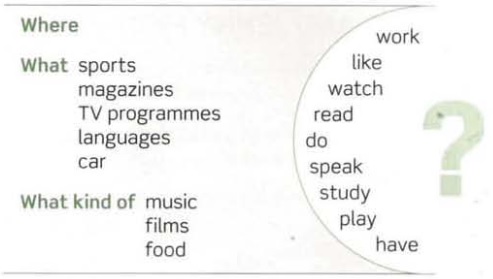

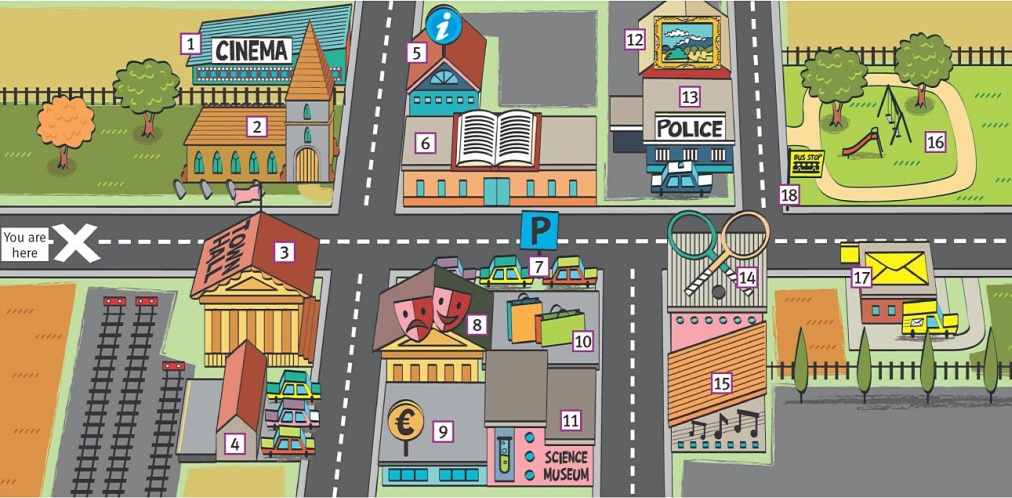
4. Соотнесите следующие слова с местами, обозначенными на карте.
art gallery bank bus stop car park church cinema concert hall leisure centre library museum park police station post office shopping center theatre tourist information centre town hall train station
5. Соотнесите указания направления с изображениями.

a). go straight on
b). take the first left
c). take the second right
d). go past the church
#12 Vocabulary: food, shops
Grammar: quantity: countable and uncountable nouns, some/any
1. а). Соотнесите указанные слова с изображениями.
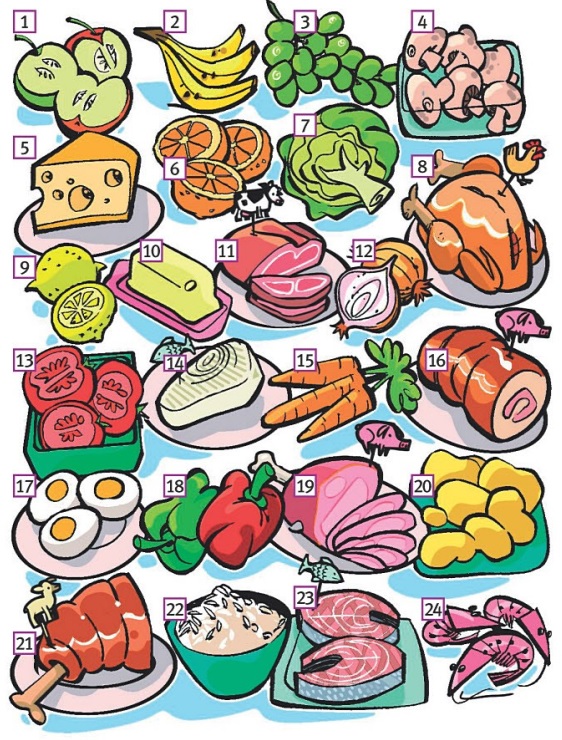
apples bananas beef butter cabbage carrots cheese chicken eggs grapes ham lamb lemons mushrooms onions oranges peppers pork potatoes prawns rice salmon tomatoes tuna
б). Сгруппируйте товары из части а) по видам магазинов, в которых их можно купить.
2. Образуйте словосочетания и переведите их на русский язык.
a loaf cheese
a bottle toothpaste
a slice soup
a liter sardines
a glass bread
a bar of lemonade
a jar meat
a kilo wine
a tube soap
a tin orange jam
a plate chocolate
3. Выберите правильный вариант, обращая внимание на правильное использование исчисляемых и неисчисляемых существительных.
1. Alex has got much information / informations about our travel. 2. Their sister wants to buy new furniture / furnitures. 3. Your hair / hairs is fair. 4. My granny always gives me some advice / advices. 5. It´s healthy to drink fresh water / waters. 6. Her dad doesn´t buy new sunglass / sunglasses.
4. Вставьте some или any.
1. There are … students in the library. 2. There isn't … light in the room. 3. Mary has got two sisters but she hasn't got … brothers. 4. I don't like popular music but … people like it. 5. Does mother have … meat for dinner? – Yes, she does … . 6. Are there … mistakes in Nick's dictation? – No, there are not … . 7. Does Max have … friends here? – Yes, he does … . 8. Does Bess have … interesting books to read? – No, she doesn't … . 9. Would you like … coffee? 10. Can I have … tea, please?
#13 Vocabulary: sports
Grammar: comparative adjectives, superlative adjectives;
comparison of adjectives
1. а). Найдите соответствия.
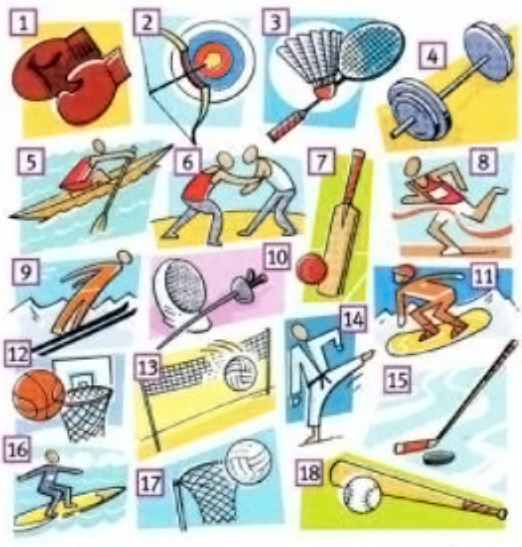
a). archery
b). athletics
c). badminton
d). baseball
e). basketball
f). boxing
g). cricket
h). fencing
i). ice hockey
j). karate
k). netball
l). rowing
m). ski jumping
n). snowboarding
o). surfing
p). volleyball
q). wrestling
r). weightlifting
б). Распределите виды спорта из части а) в следующие группы (некоторые виды спорта могут быть отнесены к разным группам):
- winter sports, - combat sports, - team sports,
- indoor sports, - outdoor sports
2. Назовите представленные на пиктограммах виды спорта.

a). b). c).

d). e). f).

g). h). j).
3. Выберите правильный вариант степени сравнения прилагательного. Переведите предложения на русский язык.
1. Nick is (happier, the happiest) boy that I know. 2. Of the six cars, I like the silver one (better, best). 3. Jane’s notebook is (cheaper, the cheapest) than mine. 4. This is (more delicious, the most delicious) cheese-cake I have ever had! 5. This bookcase is (more beautiful, the most beautiful) than that one. 6. Do you feel (better, the best) today than yesterday? 7. I think my cat is (prettier, the prettiest) of all the cats in the world. 8. Steve Jobs is (more famous, famouser) than Stephen Wozniak. 9. This week the weather is (hotter, more hot) than last week. 10. Our new house is (more expensive, expensiver) than the old one.
4 . Прочтите предложения. Запишите верные имена мальчиков.
. Прочтите предложения. Запишите верные имена мальчиков.
Ewan is taller than Ryan.
Ryan is shorter than Harry.
Harry is taller than Evan.
Lewis is shorter than Evan.
Jack is shorter than Ryan.
Lewis is taller than Ryan.
5. Подберите каждому предложению подходящие по смыслу фразы с прилагательными.
аs slow as a turtle (медленный как черепаха) – as pretty as a rose (красивый как роза) – as high as a mountain (высокий как гора) – as white as snow (белый как снег) – as hot as fire (горячий как огонь) – as pale as the moon (бледный как луна) – as brave as a lion (отважный как лев) - as clear as a bell (чистый как колокольчик) – as blue as the sky (синий как небо) – as busy as a bee (занятой как пчела) – as clumsy as a bear (неуклюжий как медведь) – as strong as steel (крепкий как сталь) – as light as a feather (легкий как пушинка) – as free as a bird (свободный как птица) – as true as a dog (верный как пес) – as cold as ice (холодный как лед)
1. My friends are … 2. Those buildings are … 3. Her voice is … 4. She has got 5 children and she is always … 5. You look ill, your face is … 6. Put on your coat. Your hands are … 7. Her teeth are … 8. Bob is a real man. He is … and his character is … 9. Their daughter looks like an angel, she is … 10. What colour are her eyes? – They are … 11. You have broken my chair. You are … 12. I can’t stand on the sand. It’s … 13. When I am in love I feel … 14. At the top of the mountain I started feeling …
#14 Vocabulary: sports
Grammar: comparative adjectives,
superlative adjectives
1. Составьте из данных слов предложения, переведите их на русский язык.
a). most – the Mona Lisa – in – is – painting – the – famous – the – world.
b). longer – the Don – is – the Volga – than.
c). more – Spain – Germany – than – beautiful - is.
d). London – city – in – biggest – the – England – is.
e). the – team – Adam – is - worst – the – player – in.
2. Соотнесите название игры с текстом.
- football - baseball - basketball - cricket - chess
1. It is a game of two players. Each of then starts with sixteen different playing pieces to move on the board. The aim is to move your pieces so that your opponent’s king will be taken.
2. This game is played on a court with a large orange ball. There are five players in each team. Two teams try to score goals by throwing a ball through a net fixed to a metal ring at each end of court. The players bounce the ball while running, and pass it to each other. The team with the most points wins.
3. It is a game between two teams and is played on a field with a bat and a small white ball. Each team consists of nine players. The teams take turns playing in the field and batting the ball. The game has nine innings.
4. It is a game played between two teams of eleven players. Players kick a ball around a field trying to score a goal. The team with the most points wins. This game is very popular in Russia and all over the world.
5. It is sometimes called an English national game. It is known that people played it in England as early as 1550. It is a very long game. International matches last for 5 days. This game is not played only by men; girls and women play it too.
3. Раскройте скобки, употребляя нужную форму прилагательного.
1. Her eyes are (grey) than mine. 2. He is (fat) man in the village. 3. My sister is (tall) girl in our class. 4. Who is (attentive) in your group? 5. It is autumn. Every day the air becomes (cold), the leaves (yellow). 6. Oil is (light) than water. 7. The (tall) trees in the world grow in California. 8. This is (beautiful) view I have ever seen in my life. 9. The Volga is (short) than Mississippi. 10. Which building is (high) in Moscow? 11. She speaks Italian (good) than French. 12. January is (cold) month of the year.
4. Вставьте as… as… или so… as… .
1. Mike is … tall … Pete. 2. Kate is not … nice … Ann. 3. My room is … light … this one. 4. Sergei is … old … Mike. 5. She is … young … Tom´s brother. 6. Nick´s English is not … good … his friend´s. 7. I am not … tall … Pete. 8. Alex is … lazy … his brother. 9. This child is not … small … that one. 10. A football match isn´t … exciting … a hockey match.
#15 Vocabulary: transport
Grammar: present continuous
1. а). Найдите соответствия.
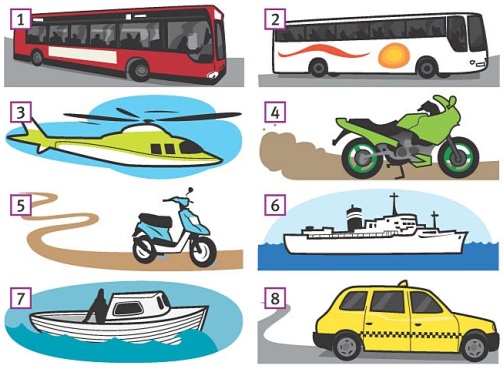
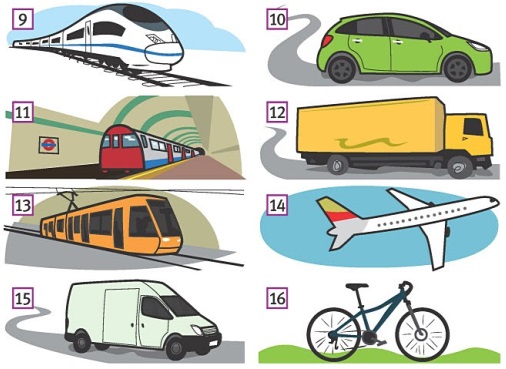
bike boat bus car coach helicopter lorry motorbike plane
scooter ship taxi train tram underground train van
b). Распределите виды транспорта из части а) в следующие группы: - land, - air, - sea.
2. Перефразируйте следующие предложения таким образом, чтобы остался тот же самый смысл.
go by bike = cycle
go by car = drive
go by bus, train, taxi, plane = take (catch) bus, train, taxi, plane
go on foot = walk
give somebody a lift to… = drive somebody to…
1. Dad sometimes drives to work.
Dad sometimes … to work … .
2. My brother drives me to the underground station.
My brother … me … to the underground station.
3. Michelle never goes to college by bike.
Michelle never … to college.
4. On Mondays, Harry takes the tram to college.
On Mondays, Harry … to college … .
5. Do you go to the beach on foot?
Do you … to the beach?
6. We always walk on town.
We always … on town … .
7. My Mum usually goes to London by car.
My Mum usually … to London.
3. ![]() 15. Прослушайте звуки и расставьте их в правильном порядке:
15. Прослушайте звуки и расставьте их в правильном порядке:
□ babies are crying
□ dogs are barking
□ people are talking loudly or arguing a lot
□ people are having noisy parties
□ children are shouting all the time
□ people are having the TV on very loud
□ people are playing loud music
□ people are playing musical instruments
4. а). Посмотрите рисунок многоквартирного дома. Как вы думаете: по какой причине жильцы из квартиры №5 не могут уснуть?
б). ![]() 16. Прослушайте диалог и проверьте верны ли были ваши суждения.
16. Прослушайте диалог и проверьте верны ли были ваши суждения.
в). Прослушайте диалог еще раз и дополните предложения, используя слова из списка:
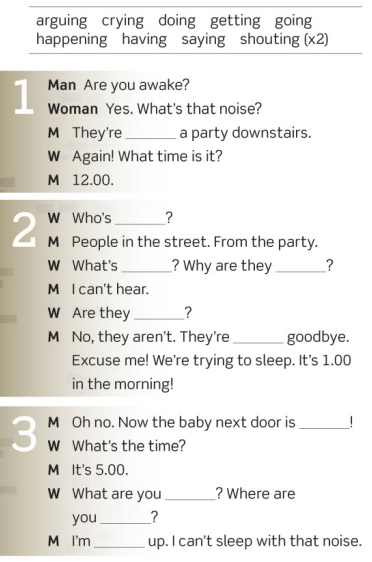
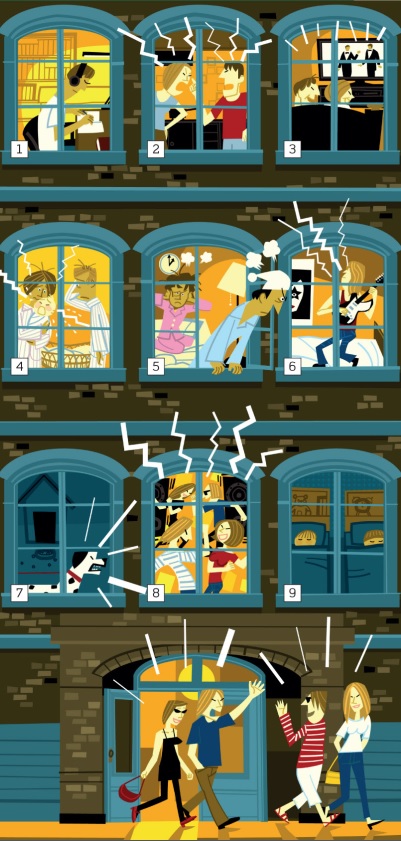
#16 Grammar: present continuous,
present continuous & present simple
1. Образуйте формы глаголов с окончанием –ing, распределите их по группам:
| + ing | e | согласная*2 + -ing |
have, come, listen, buy, swim, put, use, stop, drive, win, cry, travel, go
2. Составьте из слов предложения.
a). Anna – juice – is – orange – drinking.
b). not – sun – shining – the – is.
c). are – parents – the – in – my – sitting – garden.
d). dress – she – long – is – a – today – wearing.
e). we – playing – not – violin – are – the.
3. Запишите утвердительные (+), отрицательные (-), вопросительные (?) предложения, используя the present continuous.
1. George/drive very fast. (+) 2. I/learn Russian. (-) 3. It/snow. (?) 4. They/walk in the park. (+) 5. Sophie/eat berries. (-) 6. Mother/vacuum-clean. (?) 7. Jenny/write a postcard. (+) 8.We/swim in the swimming-pool. (-) 9. I/listen to music. (+) 10. Kevin/work. (?) 11. The nurse/feed the patient. (+) 12. The wind/blow. (?) 13. She/sing a song. (-) 14. The boys/ride horses. (?) 15. They/build a new house. (-)
4. Выберите верную форму глагола.
1. He … (works/is working) for a big insurance company. 2. Water always … (boils/is boiling) at 100 degrees. 3. I … (wait/am waiting) for my doctor at the moment. 4. Bob, stop! You … (eat/are eating) too fast. 5. She … (has/is having) four brothers. 6. Switch off the radio, please. You … (don’t listen/aren’t listening) to it. 7. I know my bad habit: I often … (talk/am talking) too loudly. 8. Look at the picture. An elegant lady … (rides/is riding) a horse. 9. Give me some salt, please. I … (make/am making) seafood salad. 10. Mary never … (speaks/is speaking) to strange people.
#17 Vocabulary & speaking: Russia
Grammar: past simple: was/were
1. ![]() 20.
20.
а). Просмотрите первую часть презентационного видеоролика о России и заполните пропуски:
The Russian Federation is the (1) … country in the world. It occupies about (2) … of the earth’s surface. It covers the eastern part of (3) … and the northern part of (4) … . Its total area is about (5) … million square kilometers. The population of Russia is (6) … million people.
The country is washed by (7) … seas of 3 oceans: the Pacific, the Arctic and the Atlantic. Russia borders on (8) … countries. It also has a sea border with the USA.
There are two great plains and several mountain chains on the territory of the country. The largest mountain chain, (9) … , separates Europe from Asia.
Russia is rich in beautiful lakes. The world’s deepest lake (1.600 meters) is (10) … . The water in the lake is so clear that if you look down you can count the stones on the bottom.
б). Продолжите просмотр видеоролика (часть 2) и отметьте указанную информацию как вымысел или истину. В необходимых случаях дайте опровержение:
a). There are wild bears on the streets of Russian cities and towns.
b). Russia is the most alcoholic country in the world.
c). The most popular drink in Russia is vodka.
d). It is always cold in Russia.
e). Russian women are the most beautiful in the world.
в). Среди мировых знаменитостей немало людей, имеющих русские корни. Просмотрите третью часть видеоролика, соотнесите достижения и фамилии людей:
1. Alexander Lodygin & Pavel Yablochkov
2. Alexander Popov
3. Igor Sikorsky
4. Proskudin-Gorsky
5. Vladimir Zvorykin
6. Alexander Poniatov
7. Alexander Mozhaisky
8. Alexey Pazhitnov
9. Vladimir Demikhov
10. Sergey Brin
a). testing of the first plane
b). tetris
c). the first helicopter
d). the first videotape recorder
e). Google
f). the first colour photo
g). the first light bulb
h). the first telegraph
i). the first artificial heart
j). the first TV
 2. Лондонская Национальная
2. Лондонская Национальная
портретная галерея – собрание
портретов известных британцев,
начиная с 16 века и по сегодняшний
день. Посмотрите на одну из
фотографий, размещенных в галерее.
![]() 21. a). Прослушайте
21. a). Прослушайте
диалог и скажите: кто эти люди?
б). Прочтите диалог и
заполните таблицу.
A I love that photo. Who are they?
B I think it´s King Edward VIII and Wallis Simpson. Let´s see. Yes, that´s
right.
A When was he king? I don´t remember a King Edward.
B Well, he was only a king for 11 months, in 1936, I think. He was Queen
Elizabeth II´s uncle.
A Why was he only king for a short time?
B Because he was in love with Wallis Simpson, the woman in the photo. She
was American. The government was against the marriage because she was
divorced. It was a terrible scandal. In the end he abdicated and they got
married.
A Who was the next king?
B His brother, George VI.
A Were Edward and Wallis happy?
B I think they were happy. They were together for the rest of their lives.
| Present Simple | Past Simple |
| I am the king. | I was the king. |
| She is divorced. | She ____ divorced. |
| They are together. | They ____ together. |
| Wallis isn´t British. | Wallis ____n´t British. |
| Are Edward and Wallis happy? | ____ Edward and Wallis happy? |
3. Заполните пропуски, используя was, were, wasn´t, weren´t.
1. King Edward VIII and Wallis Simpson … in love. 2. Where … you born? - I … born in Moscow. 3. The capital of Russia in the 19th century … Saint-Petersburg. 4. … Alexander Lodygin and Pavel Yablochkov famous writers? - They … writers, they … Russian inventors. 5. Wallis Simpson … British, she … American. 6. What day … yesterday? 7. Alexander Popov … a famous Russian scientist. 8. Edward … Queen Elizabeth II´s uncle. 9. When we … young, we … good at history. 10. In 2000 the population of Russia … 146,89 million people.
#18 Grammar: past simple
Speaking: Russian national symbols
1 . Прочтите рассказ и
. Прочтите рассказ и
ответьте на вопросы:
a). Where was the girl?
b). Where was the dog?
c). Was it the girl´s dog?
One day Suzie was in the park. She was on a bench, and there was a big dog next to the bench. A man stopped in front of Suzie. He wanted to sit down, but he was a bit nervous. «Does your dog bite?» he asked her. «No, it doesn´t», Suzie replied.
A minute later, the dog closed its teeth round the man´s lag. «Ow!» he shouted. «What do you mean, your dog doesn´t bite? You lied!»
«That isn´t my dog», explained Suzie.
2. Прочтите тексты о национальных символах Российской Федерации. Расскажите о них своими словами.
● The Russian flag is sometimes called the IMPERIAL FLAG. It consists of three equal stripes of white, blue and red. The first flag of this design appeared more than 300 years ago. Peter the Great adapted the flag from the National flag of the Netherlands. Later a black two-headed eagle on a golden background was added to the flag of Russia. The flag existed until the revolution in 1917. In the nineties, with the democratic changes, the three-colour flag was restored again. On 21 August 1991, the flag was officially adopted by the Russian President and the Russian Parliament. In Russia the colours of the current flag symbolize:
• white - frankness and generosity;
• blue - honesty and wisdom;
• red - courage and love.
● The Russian National Emblem is the golden DOUBLE-HEADED EAGLE with a horseman (St George) on a shield on the eagle's breast with a red background. Above the two heads of the eagle, there is an historical crown.
The first emblem of the double-headed eagle was introduced in 1480, by Prince Ivan III. It was at the time of the establishment of the Russian state system. It symbolized the supreme power and sovereignty of the state.
Since then, the double-headed eagle is the main part of the emblem of our country. But now the crown is a symbol of the sovereignty both of the Russian Federation (as a whole) and of its parts (subjects of the Federation).
3. Раскройте скобки, употребив глаголы в форме the past simple.
1. We (to meet) in a café last night. 2. Max (to see) his friends after work two days ago. 3. We (to plan) our summer holidays two months ago. 4. Martin (to sing) a song at the college concert. 5. We (to have) a dinner at a restaurant the day before yesterday. 6. Tom (to phone) his girlfriend yesterday afternoon. 7. They (to leave) work at 18.00 last week. 8. Alex (to get) up late in the morning yesterday. 9. I (to tidy) my room at the weekend. 10. My girlfriend (to fall) ill three days ago. 11. Last year, we (to grow) potatoes in our garden. 12. Last year, she (to celebrate) Christmas at home. 13. Emily (to lose) her keys yesterday. 14. I (to wear) a new shirt to college the day before yesterday.
4. а). Прочтите диалог. Можете ли вы дать ответы на предложенные вопросы?
Q uiz master: If you answer these questions,
uiz master: If you answer these questions,
Mike, you win ₤1,000! When
did Neil Armstrong walk on the
Moon?
Mike: Was it in 1_________?
Quiz master: That´s right. Well done! Here´s
your second question. The
Spanish brought potatoes to
Europe in the 1500s. Which
continent did potatoes come
from?
Mike: Sorry, I didn´t hear the question.
Quiz master: Which continent did potatoes come from?
Mike: Did they come from 2_______?
Quiz master: Yes! And your final question, for ₤1,000. The Nobel Peace
Prize started in 1901. Alfred Nobel started it. But what did
Alfred Nobel invent in 1867?
Mike: Did he invent the light bulb?
Quiz master: No, he didn´t! You´ve got one more guess!
Mike: Was it the camera?
Quiz master: No, he didn´t invent the camera. Alfred Nobel invented 3_____!
I´m sorry, Mike!
б). Укажите все случаи употребления глаголов в отрицательной и вопросительной форме.
#19 Grammar: past simple
Speaking: Russian regions
1. Запишите отрицательную форму указанных предложений.
1). Jack phoned Sarah yesterday evening. 2). George went to London last weekend. 3). Joe wore his new jacket yesterday. 4). Pete invited Fred to his birthday party. 5). You sent me an e-mail. 6). Wendy left home before nine o´clock. 7). My dad studied German at school.
2. Составьте вопросительные предложения и дайте ответы.
a). you / last night? / go / did / when / to bed.
b). come / how / this morning? / did / you / to college.
c). do / what / you / last Saturday morning? / did.
d). last Sunday? / you / what time / did / get up.
e). this morning? / you / what / did / for breakfast / have.
3. Найдите ошибки в указанных предложениях, запишите верный вариант.
1. Sally catched the bus to town. 2. When you come home last night? 3. Did Mum made a cake yesterday? 4. Kevin not wore jeans to college. 5. We didn´t stayed in last night. We went out. 6. «Did Jamie watch TV last night?» - «Yes, he watched.»
4. ![]() 23. a). Прослушайте песню о субъектах Российской Федерации и заполните пропуски.
23. a). Прослушайте песню о субъектах Российской Федерации и заполните пропуски.
The Russian regions
The (1) … regions of Russia are classified as follows:
● Republics - there are (2) … republics in the Russian Federation. Republics have some degree of autonomy in government. Each republic has its own constitution, president and parliament. International affairs however are still handled by the federal government.
● Oblasts - there are (3) … oblasts in the federation. An oblast is like a province. They have their own local administrative government but have less autonomy than a republic.
● Krais - there are (4) … krais in Russia. A krai is also known as a territory. They have the same legal status as an oblast. The use of the word krai is traditional, it was used mainly to refer to territories located on Russia’s border regions.
● Autonomous Okrugs - there are (5) … autonomous districts (or okrugs) in Russia. They were setup to provide autonomy to indigenous groups. The level of autonomy fits somewhere between a republic and an oblast. Autonomous Okrugs may have administrative jurisdiction delegated to a nearby oblast.
● Autonomous Oblast - there is (6) … autonomous province in the Russian federation.
● Federal Cities - there are (7) … federal cities: (8) … , (9) … and (10) … . They function as their own region under direct federal control.
б). Используя карту, приведите примеры различных типов субъектов Российской Федерации.
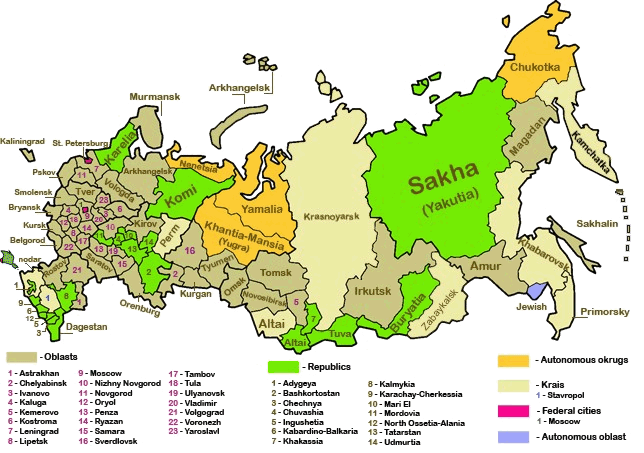
#20 Grammar: future simple;
Passive voice
1. а). Прочтите заголовок текста. Затем прочтите текст. Какой ответ он дает на вопрос, вынесенный в заголовок?

б). Найдите и запишите по одному примеру утвердительного, отрицательного и вопросительного предложений с использованием the future simple.
2. Отнесите следующие предложения к будущему. Используйте слова: tomorrow, tomorrow evening, the day after tomorrow, next week, next month, next year, in an hour, at two o'clock tomorrow afternoon.
Образец: He studies at the institute. He will study at the institute next year.
1. My sister comes home at about 6 o'clock. 2. My little brother plays in the garden. 3. They live in Moscow. 4. They have English classes twice a week. 5. Anna gets up late. 6. She likes my presents. 7. I go to bed early. 8. He phones his friends.
3. Расспросите своего друга (подругу) о его (ее) планах на будущее, используя эти выражения:
What job / do? How much/ earn? … get married? How old/ be?
… have children? How many? Where/ live?
4. Переведите предложения на русский язык, обращая внимание на выделенные фрагменты. В чем заключается различие?
1. The sea separates the British Isles from the Continent. - The British Isles are separates from the Continent by the sea.
2. Ancient people used Stonehenge as a religious site. - Stonehenge was used as a religious site by ancient people.
3. The millionth visitor will visit the Edinburgh castle next year. - The Edinburgh castle will be visited by the millionth visitor next year.
5. Выберите верную форму the past participle этих неправильных глаголов.
a). do – did / done. b). write – written / wrote. c). draw – drawn / drew. d). wear – wore / worn. e). take - taken / took. f). break – broke / broken. g). throw – threw / thrown. h). speak – spoke / spoken.
6. Употребите правильную форму глагола.
1. The roads (cover) with the snow. 2. Chocolate (make) from cocoa. 3. The Pyramids (build) in Egypt. 4. This coat (buy) four years ago. 5. The stadium (open) next month. 6. Your parents (invite) to a meeting. 7. Where is your car? – It (mend) at the moment. 8. The books already (pack). 9. The castle can (see) from a long distance. 10. The guests must (meet) at noon.
7. Измените предложения по образцу.
Образец: Shakespeare wrote “Romeo and Juliet”. – “Romeo and Juliet” was written by Shakespeare.
1. Popov invented radio in Russia. 2. Every four years people elect a new president in the USA. 3. The police caught a bank robber last night. 4. Sorry, we don’t allow dogs in our safari park. 5. The postman will leave my letter by the door. 6. My mum has made a delicious cherry pie for dinner. 7. George didn’t repair my clock. 8. Wait a little, my neighbor is telling an interesting story. 9. My son can write some more articles about football. 10. You must clean your bedroom tonight.
#21 Reading: the USA
1. Переведите географические названия на русский язык, найдите их на географической карте. Объясните употребление артикля.
the Pacific Ocean, the Atlantic Ocean, the Gulf of Mexico, Washington D.C., the Mississippi, the Missouri, the Colorado, the Sacramento, New York, Los Angeles, Chicago, Philadelphia, Detroit, San Francisco, the Rocky Mountains, the Cordillera, the Sierra Nevada.
2. a). Прочтите текст.
The United States of America
The United States of America is the fourth largest country in the world (after Russia, Canada and China). The USA lies in the central part of North America. The total area of the country is about nine and a half million square kilometres. Its western coast is washed by the Pacific Ocean. Its eastern coast is washed by the Atlantic Ocean and the Gulf of Mexico. The USA borders on Canada in the north and on Mexico in the south. It also has a sea-border with Russia.
The climate of the country varies greatly from arctic in Alaska through continental in the central part to subtropical in the south.
♦♦♦
The USA is a federal republic. It consists of fifty states and the District of Columbia. The capital of the country is Washington D. C. The population of the USA is about 250 million people. Each state has its own government.
The seat of the federal government is Washington D. C. According to the US Constitution the powers of the government are divided into 3 branches. They are the executive, the legislative and the judicial. The executive is headed by the President and his Administration. The legislative is exercised by the US Congress. The judicial is headed by the US Supreme Court.
The Congress consists of the Senate and the House of Representatives. There are two main political parties in the USA, the Republican and the Democratic.
♦♦♦
The flag of the USA is called "Stars and Stripes." There are three colours on the flag of the USA. They are red, white and blue. As there are fifty states in the USA, there are fifty stars on the American flag: one star for each state.
The American flag has thirteen stripes. The stripes are red and white. The flag has seven red stripes and six white stripes. There is one stripe for each of the first thirteen colonies which in 1776 became independent of England.
The eagle became the official national symbol of the country in 1782. It holds an olive branch (a symbol of peace) and arrows (symbols of strength) in its paws.
The USA has an official song. It is called The Star Spangled Banner.
♦♦♦
The USA is one of the greatest industrial and leading agricultural nations in the world. The USA produces around 25% of the world's industrial products, agricultural goods and services.
The USA is rich in coal, iron and oil. Many rivers cross the country. The most important are the Mississippi, the Missouri, the Colorado, the Sacramento. The main lakes are the Great Lakes in the north.
The largest cities are New York, Los Angeles, Chicago, Philadelphia, Detroit, San Francisco, Washington and others. The highest mountains are the Rocky Mountains, the Cordillera and the Sierra Nevada.
b). Дополните предложения:
1. The USA borders ... . 2. There are …… states in the USA. 3. The … became the official national symbol of the country in 1782. 4. Many rivers cross the country. The most important are ... . 5. The USA is one of the greatest ... . 6. The climate of the country varies … . 7. The population of the USA is ... . 8. The total area of the country is ... . 9. There is one stripe for ... . 10. The capital of the country is ... .
c). Прочтите начало предложения и найдите в тексте его окончание.
1. The USA has an official song. It is called ...
2. The Congress consists of ...
3. The USA lies in the ...
4. Its eastern coast is washed by ...
5. According to the US Constitution ...
6. The largest cities are ...
7. The USA produces around ...
8. There are two main political ...
d). Вставьте пропущенное слово, используя информацию из текста.
1. The USA has ... with Russia. 2. The American flag has thirteen ... . 3. The USA is one of the most ... and highly ... countries in the world. 4. The USA is rich in ..., ... and ... . 5. Each state has its own ... . 6. The USA produces around 25 per cent of the world's industrial ... goods and ... . 7. The flag of the USA is called ... .
Основная литература:
1. Г.Т. Безкоровайная, Н.И. Соколова Planet of English: учебник англ. языка для учреждений СПО, М, Издательский центр «Академия», 2023
Интернет-ресурсы:
1. Портал по изучению английского языка.
Форма доступа: http//www.englishlanguage.ru.
2. Сайты для изучения английского языка.
Форма доступа: http://www.prosv/ru
http://www.bbc.co.uk.children
http://www.study.ru
http://www.homeenglish.ru
http://www.school.edu.ru/catalog
3. Электронный оксфордский словарь.
Форма доступа: http://www.oxford.dictionary.online.
4. Электронный кембриджский словарь.
Форма доступа: http://www.cambridge.dictionary.online.

 Получите свидетельство
Получите свидетельство Вход
Вход



 + -ing
+ -ing




 + -ing
+ -ing








 Сборник лексических и грамматических упражнений для студентов І курса всех специальностей (4.69 MB)
Сборник лексических и грамматических упражнений для студентов І курса всех специальностей (4.69 MB)
 0
0 99
99 2
2 Нравится
0
Нравится
0


